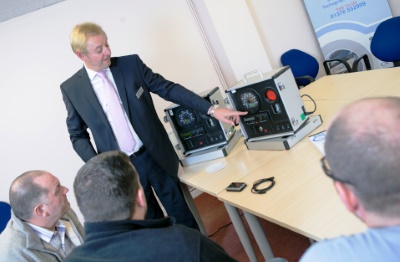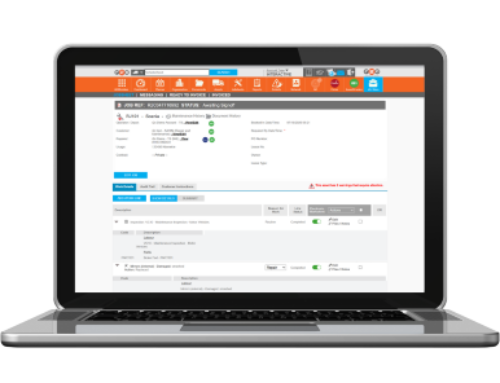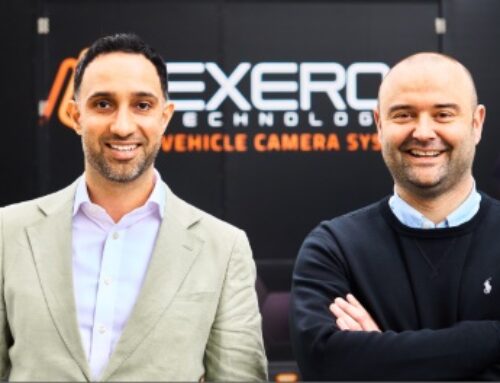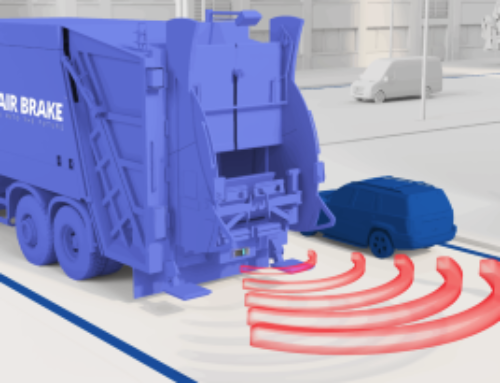‘We’ve always done it that way’
 Without regular training, operators can find themselves falling out of compliance, says Mark Lewin, director at transport training provider Novadata
Without regular training, operators can find themselves falling out of compliance, says Mark Lewin, director at transport training provider Novadata
The problem with carrying on with doing things the way that you’ve always done them – as opposed to undertaking refresher training and updating your systems and processes, based on what you’ve learned – is that transport legislation and industry best practice move on.
While the old maxim, “if ain’t broke, don’t fix it”, certainly has merit in some situations, keeping up with evolving transport legislation and industry best practice is just not one of them. Quite simply, the law changes, albeit subtly sometimes, so what you have always done may become non-compliant if you don’t keep up to date with best practice.
For example, in 2020, it became a requirement for drivers to record the hours that they spent doing work other than driving. As a result, all out-of-scope activities must be recorded, regardless of where or when they took place. Rest periods are also recorded, so there must be an accurate picture of each working week, including helping out in stores, loading vehicles, or inducting or training colleagues. Any form of work other than driving must also be recorded, as well as the hours spent at the wheel.
Tachographs and any required documents must therefore accurately record driving, other work, availability, breaks, rest periods, annual leave and sick leave. Operators are required to keep robust records of all of this. The only acceptable formats for keeping records of other activities are now a manual input on a digital tachograph, or a manual record on digital tachograph printout paper or an analogue tachograph chart. The DVSA will no longer accept diaries, time sheets, weekly time logs, wage records or notes on mobile devices as evidence of rest.
 If any of this is news, you are probably long overdue for either a Transport Manager CPC Refresher course or an OLAT (Operator Licence Awareness Training) course. It is essential that the transport manager and the directors of the company are aware of significant changes like this. If you were using any of the now outdated methods of recording, this change should have triggered a corresponding change in your processes and procedures. This is particularly true for any director, business partner or owner. Even if you have appointed a transport manager, you still have all the same legal responsibilities for compliance in your role as an O-licence holder. Your legal responsibility is shared with the transport manager. It cannot be entirely delegated to them – you are ultimately responsible for your organisation’s compliance.
If any of this is news, you are probably long overdue for either a Transport Manager CPC Refresher course or an OLAT (Operator Licence Awareness Training) course. It is essential that the transport manager and the directors of the company are aware of significant changes like this. If you were using any of the now outdated methods of recording, this change should have triggered a corresponding change in your processes and procedures. This is particularly true for any director, business partner or owner. Even if you have appointed a transport manager, you still have all the same legal responsibilities for compliance in your role as an O-licence holder. Your legal responsibility is shared with the transport manager. It cannot be entirely delegated to them – you are ultimately responsible for your organisation’s compliance.
This year alone, we have seen a raft of changes in examinations for both ADR and Transport Manager CPC. Clearly, we are heading further towards digitalisation, with the successful introduction of digital examinations for all ADR qualifications. These are conducted in person at an examination centre, and the results will now be available almost instantaneously.
Transport Manager CPC examinations are now carried out either on paper in the examination centre, or digitally from a remote location using the new proctored system, either from home or the office, provided that the candidate has the required equipment and a suitable location free from distractions. This seems to be working well, and has already resulted in there being more examination dates available for the multiple-choice module; and we anticipate that the case study module will soon follow suit, giving more opportunities to sit the exams, which is especially helpful for home study and resit candidates.
Driver CPC has also undergone one subtle change, in that unnecessary repetition of courses is no longer allowed. Some courses may be repeated, for example so that a first aid certificate can be renewed after three years, but drivers booking into the same module repeatedly because it is convenient or easy, may find that some of their hours will not be counted towards the 35 hour total, so they may not be able to renew their DQC before their deadline.
 Quite apart from needing to train to stay current with legislative changes, many people also need to refresh their knowledge of things that have stayed the same – making accurate manual entries on both analogue and digital tachographs being a prime example. Despite this being a very well-known requirement, it remains one of the most frequently occurring errors made by drivers. Manual entries, once made, cannot be corrected, so we need to get them right first time. Keeping accurate records of each driver’s working day is a legal requirement, so if the manual entry is wrong, the record will not be accurate. A wrong manual entry, or, as is more common, a series of incorrect manual entries, will mean that you inadvertently fail to comply with transport legislation.
Quite apart from needing to train to stay current with legislative changes, many people also need to refresh their knowledge of things that have stayed the same – making accurate manual entries on both analogue and digital tachographs being a prime example. Despite this being a very well-known requirement, it remains one of the most frequently occurring errors made by drivers. Manual entries, once made, cannot be corrected, so we need to get them right first time. Keeping accurate records of each driver’s working day is a legal requirement, so if the manual entry is wrong, the record will not be accurate. A wrong manual entry, or, as is more common, a series of incorrect manual entries, will mean that you inadvertently fail to comply with transport legislation.
Drivers can get a reminder of best practice as part of their periodic Driver CPC training every five years – and it’s always worth including a Drivers’ Hours and Tachographs module in your 35 hours for this reason.
However, the culture of compliance and robust record keeping should come from the top.
Managers also need to be clear about best practice, and should be passing on good habits to their drivers. Attending a Transport Manager CPC Refresher course or an OLAT course should be something that you prioritise, at least every five years.
If you don’t make time to train from time to time, you can easily fall into non-compliance and, if that happens, you will inevitably come to the attention of the traffic commissioner – putting your O-licence at risk. The traffic commissioner will almost certainly insist (if they don’t take away your O-licence immediately) that you attend a two-day Transport Manager CPC Refresher or OLAT course. It would be better to do so on your own initiative – and avoid meeting them in the first place.
Time to rethink how you’ve always done things.












